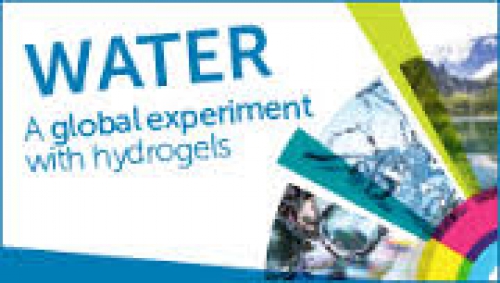
Overwhelmed by the available chemistry resources? Looking for new chemistry teaching ideas? Elementary Articles is the place for chemistry, education, and everything else.
Elementary Articles is the official blog for the RSC's Learn Chemistry – your home for chemistry education resources and activities.
Water - a global experiment with hydrogels
It is with great please that I am sharing with you our latest global experiment. Water - a global experiment with hydrogels.

This year’s global experiment and has been written with Key Stage 2 and 3 in mind (ages 7-14) and is focused on the water cycle and hydrogels – which are extremely hydrophilic (water-loving) long-chained polymers. Hydrogels are an important, water absorbent man-made material used in nappies and in the gel crystals used to keep plants ‘watered’.
The global experiment has three distinct experiments, all of which have been designed so they can be run without specialist equipment and on a small budget:
• Experiment 1: How much water can a hydrogel hold?
• Experiment 2: How quickly can hydrogels absorb water? Does this ever change?
• Experiment 3: An open investigation into how water can be retrieved from a hydrogel
These experiments all support pupils in exploring the question: are we wasting water by using hydrogels? All the data collected from the above experiments can be uploaded onto the global experiment website. Once uploaded, all the collated data will be available for examination and analysis. This creates the option of discussing the importance of repeating experiments, as well as the power, and flaws of gathering and making conclusions based on a significant amount of data.
Once you or your pupils have submitted data you’ll receive a certificate to mark your achievement. There is scope to extend the global experiment into other areas of the curriculum as its main question is relevant to exploring the impact humans have on the environment. You could; write letters to organisations and individuals telling them about your findings, blog about human impact on the environment and how your findings support or undermine key arguments, produce a piece of art using hydrogels, or anything else you can think of.
Join a global community in investigating hydrogels. Find out more at http://rsc.li/ge-water
Kind regards